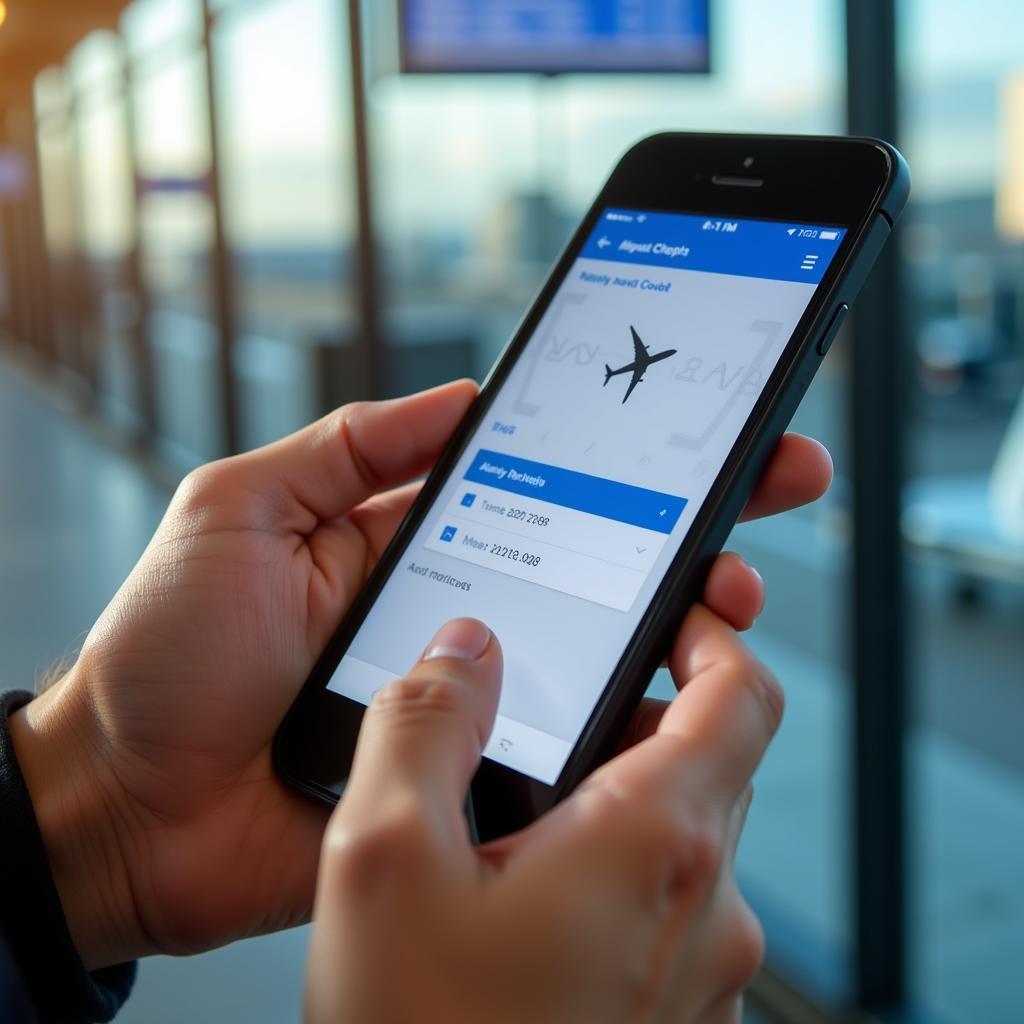Understanding International Airport Codes is essential for any traveler. Whether you’re booking a flight, tracking luggage, or simply trying to understand airport announcements, knowing these codes can save you time and confusion. This guide dives into the world of airport codes, explaining their purpose, history, and how to use them effectively.
What are International Airport Codes?
International airport codes, also known as IATA codes, are three-letter designations assigned by the International Air Transport Association (IATA) to identify airports worldwide. These codes are used globally by airlines, travel agents, and other aviation professionals. They simplify communication and ensure clarity when referring to specific airports. For example, knowing that JFK stands for John F. Kennedy International Airport in New York City eliminates any ambiguity. They are crucial for efficient operations within the global air travel network. These codes are different from the abbreviation of airport international airport as they are universally standardized.
The History of Airport Codes
The system of using three-letter codes originated in the 1930s when teletype machines were the primary means of communication. Using short codes saved time and money. Initially, airports used two-letter codes, but as air travel expanded, the system switched to three letters to accommodate the growing number of airports. This standardized system allowed for efficient communication between airports and airlines.
How are Airport Codes Assigned?
The IATA is responsible for assigning these codes. The process involves considering various factors, including the airport’s location, name, and historical significance. While most codes are derived from the airport’s city or region, some reflect famous figures or historical events. For example, cincinnati airport code CVG is derived from the nearby city of Covington, Kentucky.
Why are International Airport Codes Important?
Understanding these codes is crucial for various reasons:
- Booking Flights: When booking flights online or through a travel agent, using the correct airport code ensures you arrive at your intended destination.
- Baggage Handling: Airport codes are printed on baggage tags, helping airlines route luggage correctly.
- Flight Information Displays: Airport screens use these codes to display arrival and departure information.
- Communication: These codes provide a concise and unambiguous way to refer to specific airports, especially in international contexts.
How to Find Airport Codes
Finding airport codes is easy thanks to numerous online resources:
- IATA Website: The IATA website provides a comprehensive database of airport codes.
- Airline Websites: Most airline websites allow you to search for airports by their code or name.
- Travel Websites: Travel websites like Expedia and Kayak also provide airport code information.
Understanding Airport Code Variations
While IATA codes are the most common, other coding systems exist, such as ICAO codes, which are four-letter codes used by air traffic control. However, for general travel purposes, understanding the three-letter IATA codes is sufficient.
Tips for Using International Airport Codes
- Double-Check: Always double-check the airport code when booking flights to avoid costly mistakes.
- Be Aware of Similar Codes: Some airport codes can be similar, so pay close attention to avoid confusion. For instance, understanding the difference between 3 letter international airport codes can be crucial.
- Use Online Resources: Utilize online resources to quickly look up airport codes when needed.
- Learn Common Codes: Familiarizing yourself with the codes of frequently visited airports can save time and effort. Knowing information like the myanmar airport name can be helpful if traveling in that region.
International Airport Codes and the Future of Travel
As air travel continues to evolve, international airport codes remain a critical component of the global aviation system. These codes facilitate efficient communication and operations, contributing to a seamless travel experience. Understanding these codes is more important than ever in today’s interconnected world. Even seemingly unrelated services, like airport parking, often utilize these codes for organization and efficiency.
 Traveler Checking Airport Code on Smartphone
Traveler Checking Airport Code on Smartphone
Conclusion
International airport codes are essential for navigating the world of air travel. From booking flights to tracking luggage, these three-letter designations play a vital role in ensuring a smooth and efficient journey. Understanding their purpose and how to use them effectively empowers travelers and contributes to a more informed and streamlined travel experience. Remember, understanding international airport codes is your key to hassle-free travel.
FAQs
- What does IATA stand for? International Air Transport Association.
- Are airport codes the same worldwide? Yes, IATA codes are standardized globally.
- Can an airport have more than one code? An airport may have multiple codes, but the IATA code is the most commonly used.
- How can I find the code for my local airport? You can easily find your local airport code using online search engines or the IATA website.
- Why are airport codes important for baggage handling? Airport codes on baggage tags help airlines route luggage correctly to its final destination.
- Are airport codes used for anything other than flights? Yes, they are used in various aspects of the aviation industry, including cargo handling and flight scheduling.
- Can airport codes change? Yes, although rare, airport codes can change due to various reasons such as airport renaming or mergers.
Need further assistance? Please contact us at Phone: +13089626264, Email: [email protected] or visit us at 404 Bothwell St, Oxford, NE 68967, USA. We have a 24/7 customer service team.

